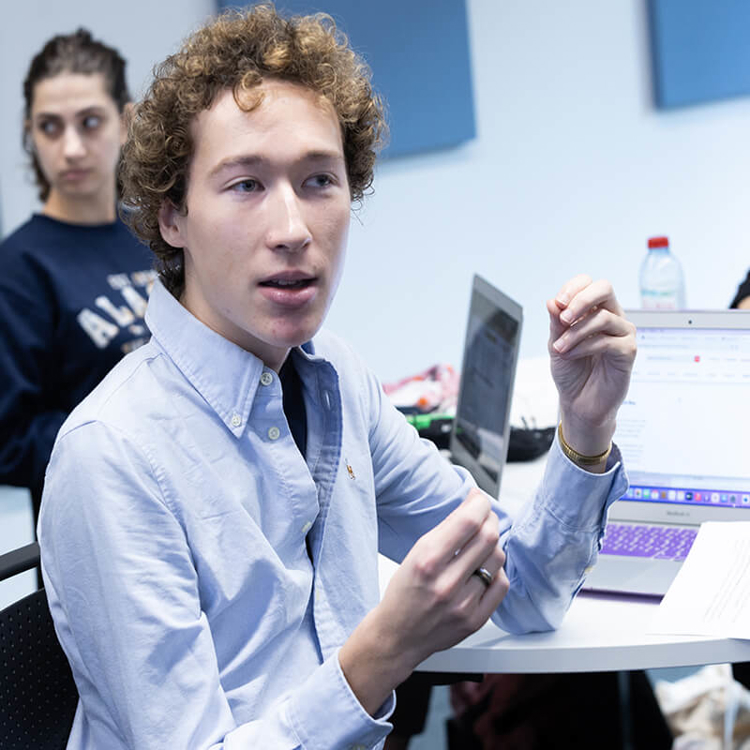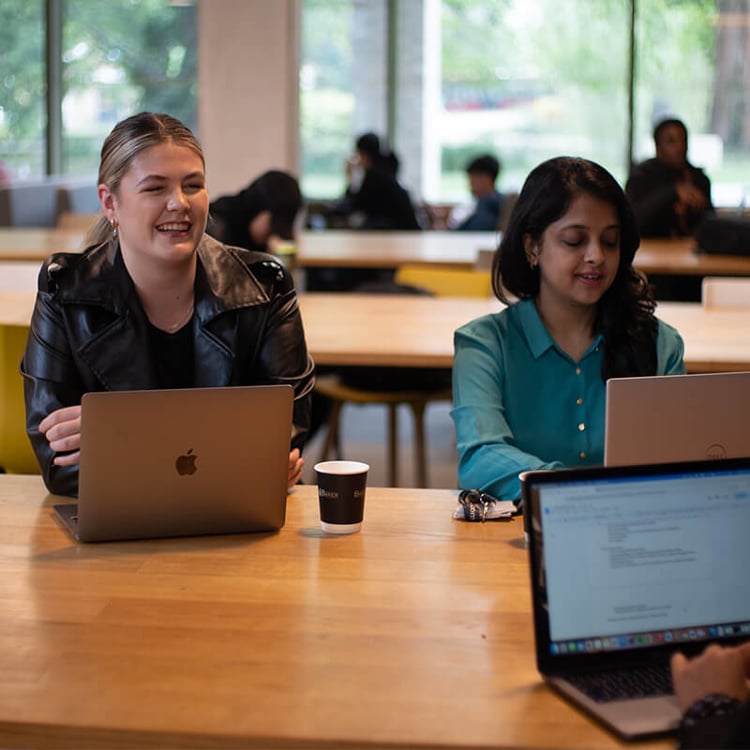Entry tariff:
112–128 UCAS points (or equivalent)
Foundation Year: 64–80 UCAS points (or equivalent)
International Foundation Pathway:
64 UCAS (or equivalent)
IELTS: 5.5
UCAS code:
9A33
9A34 (if choosing Foundation Year)
Start date(s):
September 2026
Become an expert in learning how to identify, add value and make an impact in any industry.
Our BSc Accounting will give you the essential skills in accounting, auditing, finance, taxation, financial reporting, and data analytics and visualisation, with a focus on ethical decision-making, data-driven analysis, and sustainability.
You will also gain hands-on experience of using real-world tools such as Bloomberg, Tableau, and SAGE, preparing you for modern professional challenges.

You will develop core skills in:
- Global economy
- Business law
- Financial accounting, reporting and analysis
- Management accounting and performance management
- Taxation and wealth management
- Corporate finance, and governance
- Audit and assurance
- Accounting data analytics and visualisation
- Consultancy or research skills
Accreditation
The course is fully accredited by the Association of Chartered Certified Accountants (ACCA) and the International Certified Professional Accountants (CIMA).
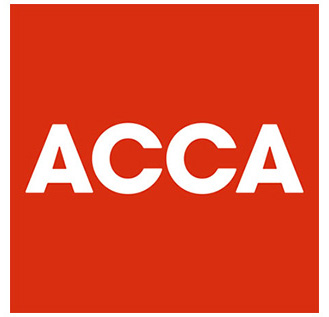

Why study accounting at Roehampton?
Gain a competitive edge by tackling current challenges, learning the tools and methods used by professionals, alongside career support.
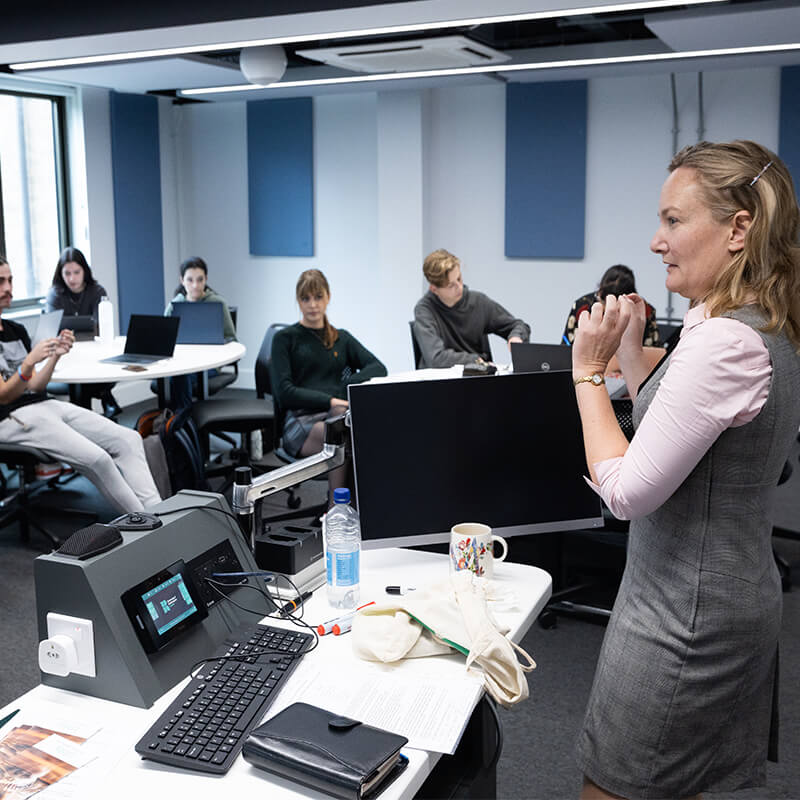
Professionally focused curriculum
This course is aligned to employer's needs, with authentic assessments that mirror workplace tasks and reinforce learning through case studies. You’ll also have the opportunity to put what you’ve learnt into a real workplace through our professional placement year and career pathway capstone project in your third year.

Robust employment support
We’ll be with you at every step to get you the career you want, with coaching, mentoring, CV and interview preparation support and you’ll also have access to employer-led sessions, where you can build your employability network.
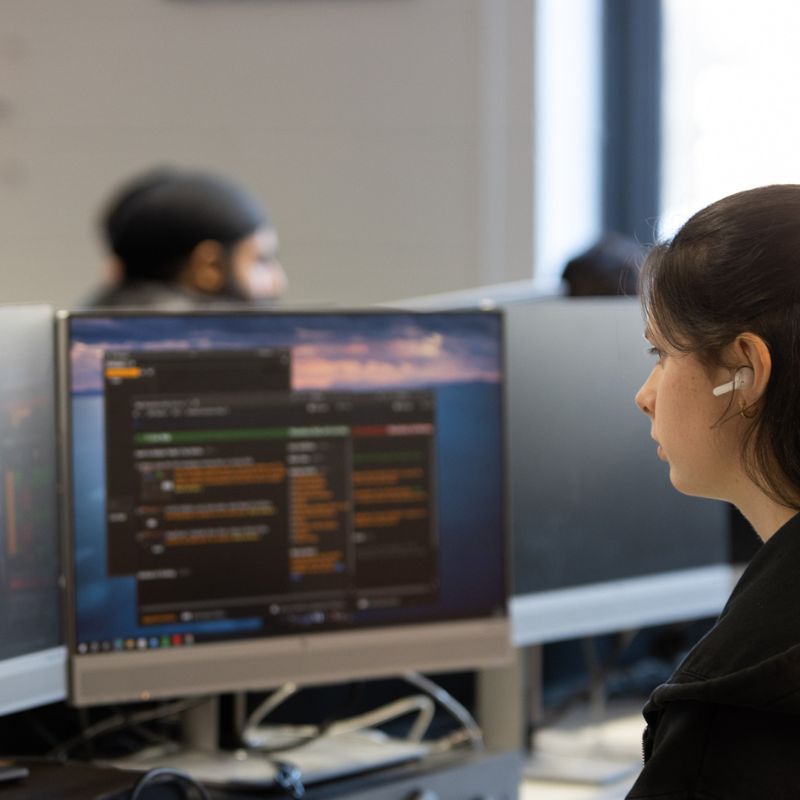
Bloomberg Trading Room
You’ll have access to real-time industry standard software in our Bloomberg terminals. You’ll be able to analyse and interpret financial and economic information, just like investors and traders across the world!
"The accounting course was a real highlight. The lecturers, especially the Programme Leader made theory come alive with practical examples."
Syl-Anne, BSc Accounting graduate

Modules
These are the current planned modules on this course and may be subject to change.
These are the modules you will take if you join us from September 2026 onwards.
30 credits
This module will introduce you to key concepts and techniques of financial accounting.
It provides you with the foundations on which you can build your knowledge and skills in all aspects of accounting practice and will develop your understanding of the importance of appropriate financial information to all business decisions. This module will enhance your employability by developing your commercial acumen through an appreciation of profits and cash flows as key business drivers of success.
You will develop an appreciation for how accounting supports fair decision-making and resource allocation across diverse contexts and learn to apply accounting techniques to maintain financial sustainability, which will prepare you to support organisations in achieving their long-term environmental and social goals.
Teaching and learning
Learning activities will include interactive lectures, case studies, group discussions, and hands-on exercises using real-world financial data. You will engage in both individual and collaborative problem-solving tasks to develop critical thinking and analytical skills. You will also be taught to use Sage Line 50 to create accounting records and prepare financial statements from records of prime entry.
You will be taught through lectures and workshops underpinned by case-based learning, alongside online support and employability-related activities.
Lectures will cover the theoretical foundations of accounting, including accounting principles, double-entry bookkeeping, financial statements, financial analysis, and the use of accounting systems such as SAGE.
Workshops will consist of practical application of lecture concepts, where you will record transactions, prepare financial statements, perform bank reconciliations, analyse financial data, and apply accounting theory to case studies and real-world scenarios using SAGE software.
Assessment
This module will be assessed by a computer-based assessment (30%) and an unseen exam (70%).
30 credits
This module is designed to equip you with the foundational business law knowledge required for business careers whether as accountants, chartered accountants, board members, or business practitioners generally.
You will be introduced to the core aspects of commercial life to give you a better understanding of your clients’ expectations and the professional and legal working environment you will evolve in after completing your degree.
The module uses various external instruments such as freely accessible taxation tools on GOV.UK and third-party websites to enable you to identify potential risks, opportunities, and governance strategies for your prospective clients while developing your critical thinking to enhance your practice.
You will be able to navigate a complex legal, economic, and regulatory framework and be an effective advocate and business leader. To achieve this, we will discuss key concepts of business law, namely:
- English Legal System: court system, introduction to common law and the sources of obligations
- Contract Law: formation, terms, breach, remedies, misrepresentation, negligent misstatement, agency
- Company Law: company constitution and incorporation, legal personality, share capital, loan capital, doctrine of capital maintenance, dividends, management of companies (role of directors, shareholders, officers, and meeting formalities), corporate insolvency procedures
- Corporate Governance and Social Responsibility: corporate ethics, civil and criminal liability
- Partnerships: key principles of partnerships, limited partnerships, and limited liability partnerships
- Tort: professional negligence
- Employment law: employment contract and termination (dismissal, redundancy)
In exploring these concepts, you will build your awareness about the interaction of various legal and economic concerns to enable you to identify key relationships and tensions between those involved in business, and apply your knowledge to real-life scenarios, explain the laws governing business enterprises with confidence, and understand practical, time and resource-saving processes to be effective workers in the future.
Teaching and learning
You will be taught through lectures and workshops that involve a range of learning and teaching approaches, which includes online support and employability-related activities. You will start building your digital skills in various ways, including accessing online resources and Excel-based financial analysis.
Lectures will cover core material, while workshops will engage you in solving practical exercises aimed at supporting and consolidating your learning. Workshops will consist of a blend of interactive activities, group work exercises and debates on set topics designed to support your skills development.
Assessment
This module will be assessed through coursework (30%) and a closed-book multiple-choice test (70%).
30 credits
You will be introduced to key concepts and issues relating to business organisations in global environments.
You will focus on globalisation and the different types and objectives of business organisations. You will then cover a range of topics related to assessing the environments within which businesses operate such as economic growth, international trade and global industries. The link between business organisations and environments is further examined within the context of analytical frameworks such as PESTLE, Porter's 5 Forces and Demand/Supply analysis.
Teaching and learning
You will be taught through lectures and workshops that involve a range of learning and teaching approaches, which includes online support and employability-related activities.
Lectures will cover core business environment concepts and analytical frameworks, while workshops will engage you in solving practical global business challenges and strategic decision scenarios.
Workshops will consist of a blend of interactive global business simulations, group work on international market analysis and strategic decision-making exercises, and debates on contemporary global economic issues designed to support analytical and cross-cultural communication skills development.
Assessment
This module will be assessed by a reflective journal (30%) and coursework (70%).
30 credits
You will be introduced to the fundamental principles and techniques of management accounting, equipping you with the skills needed to support strategic decision-making in business contexts. Through weekly topics, you will gain practical insights into how financial and non-financial information is used to plan, control, and make informed decisions within organisations.
Aligned with the United Nations Sustainable Development Goals (SDGs), this module will encourage you to consider how management accounting can contribute to Decent Work and Economic growth (SDG 8) through learning cost management and resource allocation for sustainable business practices, and to Responsible Consumption and Production (SDG 12) by analysing how budgeting, forecasting. performance measurement throughout the syllabus can promote efficiency and sustainability in business operations.
This module also has a strong focus on employability and developing your key transferable skills, including problem-solving, analytical thinking, and effective communication of quantitative data. By simulating real-world scenarios, you will be prepared for roles in finance, business analysis, consultancy, and management. The assessments are designed to reflect workplace demand ensuring you are both academically competent and professionally prepared.
Teaching and learning
You will be taught through lectures and workshops underpinned by case-based learning. You will also have access to online support and employability-related activities.
Lectures will cover core material, while workshops will engage you in solving practical exercises aimed at supporting and consolidating their learning.
Assessment
This module will be assessed by reflective journals (30%) and an unseen exam (70%).
These are the current planned modules on this course and may be subject to change.
30 credits
This module aims to provide the knowledge required for you to either work as tax advisors or to have sufficient knowledge to know how to effectively plan your own tax affairs. The module considers taxation systems in the modern, global economy using the evolution of, and the current UK tax system as a base.
You will be introduced to the progressive nature of the UK tax system. Where you will consider ethical and moral issues surrounding the tax system, including fairness, efficiency, public benefit, and public harm. Tax Planning opportunities will be discussed so you can appreciate how wealth can be maximised.
Teaching and learning
You will be taught through lectures and workshops that involve a range of learning and teaching approaches, which includes online support and employability-related activities.
Lectures will cover core tax principles and legislation, while workshops will engage you in solving practical tax computations and planning scenarios aimed at supporting and consolidating your learning.
Assessment
This module will be assessed by an individual presentation (30%) and a closed-book exam (70%).
30 credits
The aim of this module is to develop knowledge and skills in understanding and applying accounting standards and the theoretical framework in the preparation of financial statements of entities.
The module begins with the conceptual framework for financial reporting with reference to the qualitative characteristics of useful information and the fundamental bases of accounting introduced in level 4 Financial Accounting. It then moves into a detailed examination of the regulatory framework of accounting and how this informs the standard setting process.
The main areas of the course cover the reporting of financial information for single companies in accordance with generally accepted accounting principles and relevant accounting standards.
The Financial Reporting and Analysis module aligns with the Financial Reporting Syllabus from PSRBs like ACCA and CIMA. Covering key topics such as IAS standards and financial statement analysis, it ensures you gain the essential knowledge and skills for professional exams and careers in financial reporting.
The module incorporates real-world applications, such as the analysis of corporate financial statements and the exploration of current industry trends. The module indictive contents are ACCA and CIMA accredited, following and being updated according to professional bodies' syllabus and standards. You will develop skills to navigate international regulations and address global challenges through curricular design.
The module is designed with the aim of transitioning from traditional financial reporting to sustainability reporting, highlighting the importance of ethical and responsible business practices in today’s world. Topics such as climate-related financial disclosures encourage you to discuss how sustainability initiatives can create long-term value despite higher upfront costs. Students work on problems that require them to balance financial performance with sustainability goals in case studies.
Teaching and learning
You will be taught through lectures and workshops that involve a range of learning and teaching approaches, which includes online support and employability-related activities.
Lectures will cover core financial principles and analytical techniques, while workshops will engage you in solving practical financial modeling exercises and investment decision scenarios aimed at supporting and consolidating your learning.
Workshops will consist of a blend of interactive financial modeling exercises, group work on investment appraisal and capital structure decisions, and debates on contemporary corporate finance issues designed to support your analytical and decision-making skills development.
The interactive activities on the digital platform (Bloomberg & Sage cloud) will provide you with an opportunity to apply the knowledge and skills learned in practice and will eventually prepare you for future professional success in a rapidly changing environment.
Assessment
This module will be assessed by a group presentation (30%) and a closed book exam (70%).
30 credits
The module aims to develop the knowledge and skills of the core areas of finance including investment, financing, and dividend policy decisions. The module is designed to equip you with the skills that would be expected from a finance manager in the early stages of a career in the finance function of a business.
The module adopts a blended learning approach, incorporating theoretical instruction, hands-on financial analysis of a business from the perspective of a finance manager’s responsibilities, and real-world case studies, ensuring that diverse learning styles are accommodated. The module also encourages collaborative learning, enabling you to develop your ability to work effectively in diverse groups and to broaden your world view and own perspectives by considering a wider range of perspectives and ideas.
You will explore corporate finance and investment practices in domestic and international contexts, including financial market structures, global sources of financing, and cross-border investment appraisal. Real-world case studies and strategic investment frameworks will help you develop a global outlook on financial decision-making and risk assessment.
Teaching and learning
You will be taught through lectures and workshops that involve a range of learning and teaching approaches, which includes online support and employability-related activities. You will start building your digital skills in various ways, including accessing online resources and Excel-based financial analysis.
Lectures will cover core financial principles and analytical techniques, while workshops will engage you in solving practical financial modeling exercises and investment decision scenarios aimed at supporting and consolidating your learning.
Workshops will consist of a blend of interactive financial modeling exercises, group work on investment appraisal and capital structure decisions, and debates on contemporary corporate finance issues designed to support your analytical and decision-making skills development.
Assessment
This module will be assessed by a closed-book exam (70%) and an Excel-based project on DCF/working capital management and a group presentation (30%).
30 credits
This module develops advanced knowledge and critical skills in performance management, essential for future accounting professionals.
You will explore and apply sophisticated management accounting techniques to support operational and strategic objectives. You’ll cover key topics including sophisticated costing systems, budgeting and variance analysis, risk and uncertainty in decision-making, and non-financial performance measures. You will also examine the impact of digital transformation on performance measurement and how data analytics and emerging technologies can be leveraged to improve organisational value creation. The module fosters analytical decision-making through real-world case studies that simulate complex, uncertain business environments.
You will critically evaluate how performance management can drive sustainable business practices and long-term value creation. You will consider the role of management accountants in promoting ethical decision-making, corporate responsibility, and sustainable development.
The module is strongly geared toward employability by equipping you with highly relevant technical competencies, including strategic costing, risk analysis, and performance evaluation, alongside transferable skills such as teamwork, communication, critical thinking, and digital literacy
Teaching and learning
You will be taught through lectures and workshops that involve a range of learning and teaching approaches, which includes online support and employability-related activities.
Lectures will cover core material, while workshops will engage you in solving practical exercises aimed at supporting and consolidating your learning.
Workshops will consist of a blend of interactive activities, group work exercises and debates on set topics designed to support skills development.
Assessment
This module will be assessed by a group presentation (30%) and a case study-based exam (70%).
These are the current planned modules on this course and may be subject to change.
Professional Experience Year
This course also offers the option of a Professional Experience Year. This programme combines dynamic career modules with flexible placement opportunities. After completing your first year of study, you'll then spend the next academic year completing your Professional Experience training as part of your degree. This will give you real career experience. This unique opportunity offers you distinct paths to build your expertise.
Find out more about our Professional Experience Year
This course also offers all students the option of a one-year paid work placement, to boost your employability even further. If you choose this route, you will take the placement following year two of your course, and then return to complete your degree.
Why take a placement?
A placement year is the perfect opportunity to gain valuable work experience, to build on the career skills we will teach you on this degree. The connections you make on the placement will improve your career prospects further, and equip you with the skills you need to secure graduate-level employment.
How we support you
The University's Placement and Work Experience Team are experts at helping you to secure a placement. They will work closely with you from the start, helping you research potential employers, discover placement opportunities, create and pitch your CV, and will coach you to perform well in interviews. We aren't able to guarantee a placement, but our sector-leading advisors will give you the best possible chance of securing one.
Find out more about how we'll support you
We understand that your plans might change once you start your programme. If you decide not to do a placement, you will have the option of completing the three year version of your programme.
Whatever your choice, you will have access to many opportunities for work experience through our Placement and Work Experience Team, and access to face-to-face and 24/7 online careers support.
30 credits
This module will equip you with the data analytics and visualisation skills increasingly demanded in today’s accounting and finance professions. It introduces key analytical tools - such as Excel and Tableau - while developing the ability to interpret and communicate financial insights using both quantitative and visual approaches.
You will explore a wide range of topics including financial ratio analysis, forecasting, data transformation, regression, and data storytelling. You will also learn to integrate non-financial metrics (e.g., ESG indicators) to support responsible and sustainable business decisions.
Teaching and learning
You will be taught through lectures and workshops that involve a range of learning and teaching approaches, which includes online support and employability-related activities.
Lectures will cover core material, and workshops will consist of a blend of interactive activities, group work exercises and debates on set topics designed to support your skills development.
You will get hands-on experience of using Excel, Tableau, and possibly Python or Power BI as extensions.
Assessment
This module will be assessed by a group assessment (30%) and an individual assessment (70%).
30 credits
This module provides you with a comprehensive grounding in audit and assurance. It provides the necessary contextualisation, conceptualisation, skills and capacity for critique that is required for professional accreditation bodies, exempting you from the ACCA Audit and Assurance (AA) paper.
Ethical issues are embedded throughout the module so that you can understand, identify, and evaluate fundamental principles of ethics, particularly as you apply in an audit. You will research and analyse auditing concepts, evaluate ethical frameworks and professional standards, and apply audit concepts to everyday business activities.
Teaching and learning
You will be taught through lectures and workshops that involve a range of learning and teaching approaches, which includes online support and employability-related activities.
Lectures will be developed around the key concepts, theories, principles, and mechanism of audit and assurance of practice and ethical codes of conduct. Workshops will foster analytical proficiency through a variety of activities, including quantitative tasks, discussions, quizzes, and case studies.
Assessment
This module will be assessed by a test (30%) and an exam (70%).
30 credits
This intensive six-week taught module is designed to equip you with the essential competencies needed for professional consultancy practice.
This module serves as the skills-based foundation for the concurrent Roehampton Live Project, providing you with theoretical frameworks, practical tools, and professional capabilities required to deliver high-quality consultancy services to real clients.
Delivered as a professional bootcamp in a blocked format, this module creates an immersive learning environment where you will develop expertise in consultancy methodologies, client relationship management, strategic problem-solving, and professional communication. The intensive structure enables you to build confidence and competence before engaging with live client projects.
You will learn to integrate ethical considerations, social responsibility, and environmental sustainability into your consultancy approach, ensuring that your professional practice contributes to broader societal wellbeing.
Key areas of focus include consultancy frameworks and methodologies, client engagement and relationship management, evidence-based research and analysis techniques, strategic thinking and recommendation development, professional communication and presentation skills, and ethical consultancy practice and sustainability integration.
You will engage in real case studies and simulated client scenarios, working individually and in teams to apply learned concepts. The module incorporates guest speakers from industry, practical workshops, and reflective exercises to bridge theory and practice effectively.
This module prepares you for immediate application of skills in your concurrent Live Project module, where you will work with real clients as part of the ‘Roehampton Business Advice Centre’.
Teaching and learning
The module employs intensive blocked delivery with high contact hours to create an immersive professional development experience. Teaching methods include interactive workshops, case study analysis, simulation exercises, guest speaker sessions, and peer learning activities.
You will have 22 hours of lectures and 33 hours of workshops over six weeks. Lectures and workshops will be interactive in nature providing an environment for sharing business ideas, problem space mapping and evaluation opportunities and carrying business scoping exercise.
Assessment
This module will be assessed through consultancy toolkit portfolio coursework (50%) and a consultancy bid presentation (50%).
30 credits
This transformative capstone module is designed to bridge the gap between academic study and professional practice. You will have the opportunity to apply your academic knowledge in a real-world setting, developing strategic solutions to real-world business challenges.
You will work in consultancy teams as part of the Roehampton Business Advice Service, collaborating with a diverse range of external clients, including small and medium enterprises (SMEs), non-profit organisations, social enterprises, and larger companies. Global engagement projects will also be sought with partners outside of the UK, or projects that can have an influence on communities globally.
Each team will engage with a client to diagnose business problems, conduct in-depth research, and formulate evidence-based recommendations. By making an impact through real-world projects, you will enhance your ability to navigate complexity, synthesise information, and communicate your insights effectively to senior stakeholders.
While teamwork is a core aspect of this module, you will also undertake substantial individual work, ensuring that your personal contributions are critically assessed and aligned with your professional aspirations. The module is structured to simulate a professional consultancy environment, equipping you with the practical skills, commercial awareness, and adaptability needed for leadership roles in business and beyond.
You will be encouraged to develop ethical, socially responsible, and sustainable business solutions, ensuring that your recommendations contribute not only to organisational success but also to broader societal and environmental wellbeing.
Through a combination of practical experience, academic rigor, and reflective work-based learning, you will be empowered to become a strategic thinker, problem solver, and an influential professional. The module is designed to be a stepping stone into a range of career paths, with projects aligned with your own career goals. By the end of this module, you will have built a portfolio of high-quality work that demonstrates your analytical, decision-making, and communication skills.
Teaching and learning
Each consultancy team will be assigned an academic supervisor who will provide structured guidance, feedback, and oversight throughout the project.
You will have scheduled supervision meetings, including meetings with your supervisor at key milestones during the project to discuss progress, challenges, and next steps. Supervisors will support you in managing client relationships and ensure professionalism in communications.
Assessment
This module will be assessed by a consultancy report (50%) and a live presentation (50%).
These are the current planned modules on this course and may be subject to change.
This course offers a foundation year, which takes place at the beginning of your studies. Studying a foundation year will give you academic and practical experience, and a strong introduction to your subject, ensuring you succeed on your undergraduate degree.
30 credits
You will develop your core academic and integrated English language skills of speaking, listening, reading and writing. You will become familiar with key academic skills and concepts, such as referencing methods and awareness of academic integrity and tone. You will apply these skills and knowledge to both broad topics and also your chosen subject pathway.
Teaching and learning
You will be required to actively engage in on-campus learning for up to 10 hours a week.
You will be taught through a full range of teaching and learning methods, which include lectures, seminars, workshops, discussion groups, group directed tasks and presentations. This will enable you to learn from your peers and tutors in both structured and information settings.
You will be encouraged to think creatively about your approach to learning and discussions with your peers. You will also have access to recordings, resources, links and signposting through Moodle to enrich your learning.
Assessment
You will be assessed through group and individual presentations, comparative and reflective essays, multiple choice exams, coursework and reports, oral exams, portfolios, case studies and blogs.
30 credits
You will develop your core academic and integrated English language skills of speaking, listening, reading and writing. You will become familiar with key academic skills and concepts, such as referencing methods and awareness of academic integrity and tone. You will apply these skills and knowledge to both broad topics and also your chosen subject pathway.
Teaching and Learning
You will be required to actively engage in on-campus learning for up to 10 hours a week.
You will be taught through a full range of teaching and learning methods, which include lectures, seminars, workshops, discussion groups, group directed tasks and presentations. This will enable you to learn from your peers and tutors in both structured and information settings.
You will be encouraged to think creatively about your approach to learning and discussions with your peers. You will also have access to recordings, resources, links and signposting through Moodle to enrich your learning.
Assessment
You will be assessed through group and individual presentations, comparative and reflective essays, multiple choice exams, coursework and reports, oral exams, portfolios, case studies and blogs.
30 credits
You will develop your research, numeracy and information technology skills. You will investigate the difference between primary and secondary research, conduct your own research project and demonstrate your findings through data analysis. You will also develop your awareness of equality, diversion and inclusion in the UK, through a real-world issue; discrimination in the workplace.
Teaching and learning
You will be required to actively engage in on-campus learning for up to 10 hours a week.
You will be taught through a full range of teaching and learning methods, which include lectures, seminars, workshops, discussion groups, group directed tasks and presentations. This will enable you to learn from your peers and tutors in both structured and information settings.
You will be encouraged to think creatively about your approach to learning and discussions with your peers. You will also have access to recordings, resources, links and signposting through Moodle to enrich your learning.
Assessment
You will be assessed through group and individual presentations, comparative and reflective essays, multiple choice exams, coursework and reports, oral exams, portfolios, case studies and blogs.
30 credits
This module provides you with a foundational understanding of the principles and practices of business. You will explore the fundamental concepts of business environments, legal structures, and organisational dynamics, focusing on small and large businesses.
With the introduction of key principles of sustainability, social responsibility, and inclusive business practices in a globalised economy, it is expected that you will develop an understanding of contemporary issues affecting businesses at both local and global levels. The transferable skills you will develop in taking this module will enable you to critically evaluate new business ventures, create mission and vision statements, and engage in collaborative activities to develop essential teamwork and communication skills.
The module follows a thoughtful combination of theory, applied learning and reflective practices. By emphasising real-world applications, ethical considerations and global awareness, you will become a responsible, skilled and adaptive business professional.
Teaching and learning
Through interactive workshops, role-play activities, and case studies, it is expected that you will develop practical skills in business planning, stakeholder analysis, and strategic thinking.
The teaching delivery for each module consists of one, one-three-hour lecture and one, two-hour seminar per week. Seminars will consist of individual, group activities and role plays.
You will also have an additional 30 minutes of online support each week, which will consist of individual tasks such as quizzes, posting on discussion forums, watching videos and taking notes and reading.
Assessment
This module will be assessed using a business pitch and an individual written report.
40% - formative assessment where you will identify sources of business ideas (300 words) and summative assessment, where you will be required to present a business pitch to an audience of investors.
60% - individual written report, using a start-up company of your choice to identify and evaluate key challenges faced.
30 credits
This module delves deeper into core business functional areas and includes topics such as: marketing, finance, Human Resource Management (HRM) and leadership. The module is structured to enable you to gain an understanding of analytical frameworks such as SWOT, PESTLE and Porter’s Five Forces that will enable you to evaluate as well as identify opportunities and challenges within different business environments. The transferable skills you will develop in taking this module will enable you to critically evaluate the key functional aspects of business operations and application of theory to practice.
You will also evaluate the principles of product life cycle, and business portfolio management. This exploration will further develop your foundational skills that will enable you to deal with real-world business challenges and engage in critical discussions. Additionally, the module design follows a thoughtful combination of theory, applied learning and reflective practices, emphasising real-world applications, ethical considerations and global awareness, preparing you to become a responsible, skilled and adaptive business professional.
Teaching and learning
This module will be delivered to ensure active interactions through workshops and seminar activities while focusing on practical applications, such as cost behavior, breakeven analysis, market research, recruitment processes, and globalisation.
The teaching delivery for each module consists of one, one-three-hour lecture and one, two-hour seminar per week. Seminars will consist of individual, group activities and role plays.
You will also have an additional 30 minutes of asynchronous digital support each week, which will consist of individual tasks such as quizzes, posting on discussion forums, watching videos and taking notes and reading.
Assessment
This module will be assessed using a group presentation and an individual written report.
40% - group presentation, where you will use relevant tools to evaluate the macro environment of a business organisation of your choice.
60% - individual written report, acting like an independent management consultant, you will write an analytical business report on a company of your choice on how it can gain or increase its competitive advantage.
These are the current planned modules on this course and may be subject to change.
Careers
You’ll graduate well-prepared to pursue a career in diverse accounting and finance roles across various industries.
With our BSc Accounting degree, you’ll have gained strong technical knowledge, practical skills, ethical awareness, and digital proficiency, enabling you to contribute effectively to whatever career you choose.
Our graduates pursue careers in as trainee accountants, auditors, financial analysts, tax advisers, and business consultants.

The Student Futures team is here to support you throughout your time at Roehampton and beyond.
They offer services tailored to your needs, helping you take confident steps towards your future.
You’ll have access to a wide range of career workshops and events, where you can engage with employers and develop the skills you need to succeed in the workplace.
These opportunities will help you build your CV, prepare for interviews, and connect with successful Roehampton graduates who are thriving in their careers. You’ll also be able to engage with our partners across London and beyond.
Wherever you want to go in the future, you'll be preparing for the world of work from your very first day.
Continue your studies at Roehampton
Once you've graduated, you could study one of our specialist postgraduate courses:
Learning & assessment
The course employs case-based and experiential learning, complemented by coaching, to cultivate critical thinking, collaboration, and professional skills.
You will work with real-world scenarios, live projects, and reflective practices. Teaching integrates lectures and practical workshops, promoting active, applied learning that will prepare you for complex, dynamic professional environments.
In state-of-the-art facilities, including our Bloomberg Trading Room and SAGE accounting software, you will apply concepts from financial accounting, management accounting, and corporate finance in practical settings.
You will engage with a wide variety of scenarios drawn from real organisations across sectors such as marketing, operations, entrepreneurship, HRM, sustainability, and strategy. These cases will challenge you to work collaboratively to analyse issues, debate alternative perspectives, and generate solutions that connect theory with practice.
We will empower you to take ownership of your learning journey and develop the mindset to be a lifelong learner. We will facilitate your learning through reflective dialogue, structured feedback, and mentoring that will enhance your personal growth and academic independence.
You’ll gain key skills in resilience, adaptability and professional self-awareness and put yourself in a confidence place for future study or employment.
Assessments encompass coursework, reports, exams, case studies, Excel/Tableau projects, consultancy/research assignments, and Bloomberg terminal use, all reflecting real business practices.
Opportunities & facilities
At Roehampton, you will become part of a values-led, globally conscious academic community where innovation, sustainability, and inclusive leadership are central to how we teach, learn and build the future.
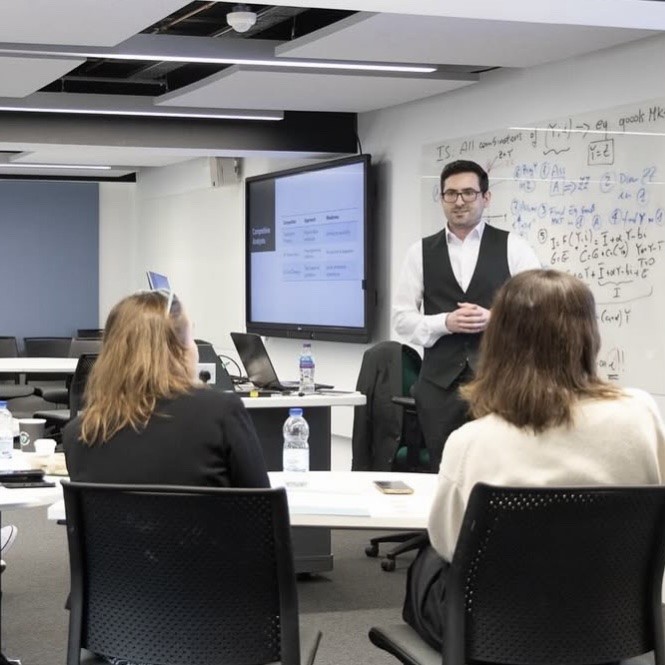
Roehampton Business Laboratory
Our enterprise incubator will support you in developing and scaling entrepreneurial ideas. It also houses signature initiatives like the RISE Prize and the Dragon's Den Style Launchpad showcase.
Celebrating innovation at the LaunchPad start-up awards 2025

Bloomberg Trading Room
You'll have access to the same powerful tools that professionals use to analyse real-time finance and economics data, stay ahead of the curve with the latest insights, and build the skills that will set you apart in the competitive finance industry.

World-class library
Home to hundreds of thousands of books, over 1,000 seats, and modern, collaborative and silent study spaces. You'll also have access to a vast range of online resources, like e-books, journals, and databases whenever you want.
Open days
Get a real taste of our campus, community and what it’s like to study at Roehampton
Applying
Full-time UK undergraduate students apply through UCAS.
Entry tariff
112–128 UCAS points (or equivalent)
Foundation Year: 64–80 UCAS points (or equivalent)
Looking to work out your UCAS points or find out about our entry requirements? Find out more.
When we consider applications to study with us, we form a complete view of your achievements to date, and future potential, and can offer flexibility in entry requirements. Find out more about our Contextual Offer scheme.
Specific entry requirements:
GCSE - Maths at grade 4/C
Due to the accreditation of the BSc Accounting degree by ACCA no students can be accepted onto this degree programme by credit transfer.
General entry requirements
International undergraduate students apply through our direct application system.
Entry tariff
112–128 UCAS points (or equivalent)
International Foundation Pathway:
64 UCAS (or equivalent)
IELTS: 5.5
Looking to work out your UCAS points or find out about our entry requirements? Find out more.
When we consider applications to study with us, we form a complete view of your achievements to date, and future potential, and can offer flexibility in entry requirements. Find out more about our Contextual Offer scheme.
Specific entry requirements:
GCSE - Maths at grade 4/C
Due to the accreditation of the BSc Accounting degree by ACCA no students can be accepted onto this degree programme by credit transfer.
General entry requirements
Fees and funding
UK students
Tuition fees
| Entry date | Undergraduate Year 1 | Undergraduate Foundation Year |
|---|---|---|
| September 2026 | £9,790 | £5,914 |
| January 2027 | £9,790 | – |
Prices shown are for the first year of your degree.
Funding your studies
We also provide other ways to support the cost of living, including on-campus car parking, hardship support and some of the most affordable student accommodation and catering in London.
International students
Tuition fees
| Entry date | Undergraduate Year 1 | Undergraduate Foundation Year | International Foundation Pathway | International Year 1 in Business |
|---|---|---|---|---|
| September 2026 | £17,628 | £17,628 | £17,628 | £17,628 |
| January 2027 | £17,628 | – | £17,628 | £17,628 |
Prices shown are for the first year of your degree.
Funding your studies
We also provide other ways to support the cost of living, including on-campus car parking, hardship support and some of the most affordable student accommodation and catering in London.


